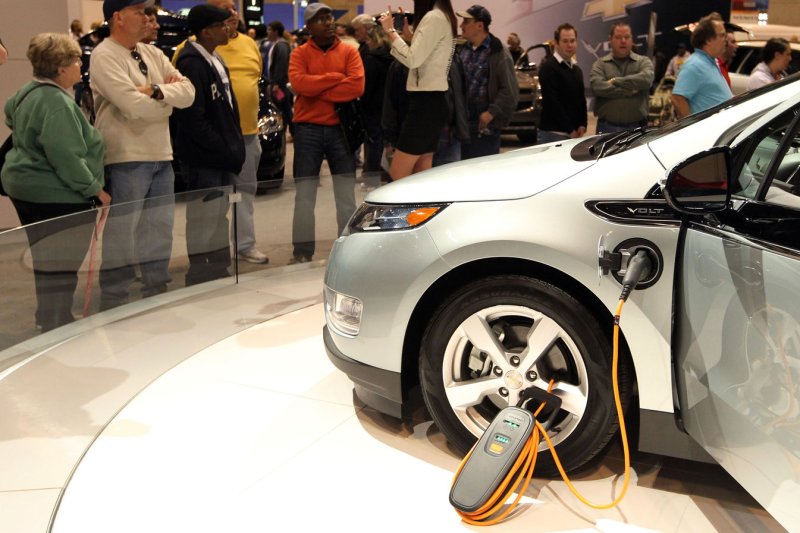New Zealand government forms a special counsel to help accelerate the implementation of electrical vehicles on the roads. File Photo by Bill Greenblatt/UPI |
License Photo
WELLINGTON, New Zealand, Aug. 24 (UPI) -- The government of New Zealand said it formed a special counsel tasked with accelerating the deployment of electric vehicles on the road.
The government this year launched an initiative aimed at doubling the amount of electric vehicles on the road to 64,000 by 2021. Transport Minister Simon Bridges said a 10-member panel was appointed to help reach that goal.
"I'm confident that this carefully selected group of corporate and government managers will bring their sectors together, and are ideally placed to carry out their role in this fast-moving program," he said in a statement.
The panel counts David Crawford, the CEO of the Motor Industry Association, and Abbie Reynolds, the executive director of the sustainable business council, among its ranks.
Bridges in May unveiled a package of incentives the government said would remove some of the barriers that inhibited the broader use of electric vehicles. According to his estimates, consumers would pay the per-gallon equivalent of 85 percent less for fuel with electric vehicles.
Last week, he said about $2.9 million could be available, with up to $4.3 million in future years, starting mid-September to help diversify the electric vehicle market and facilitate the availability of charging infrastructure across the country.
Even though the International Energy Agency estimates electric vehicles make up 0.1 percent of the global market share, analysis from Wood Mackenzie estimates electric vehicles could erase thousands of barrels of oil demand if utilized for the transportation sector.
"They're cheaper to run than petrol or diesel vehicles, they're powered by our abundant renewable electricity supply, and they'll reduce the amount of emissions that come from the country's vehicle fleet," Bridges said.
The government aims to get 90 percent of its electricity supplied through renewable energy resources by 2025.















